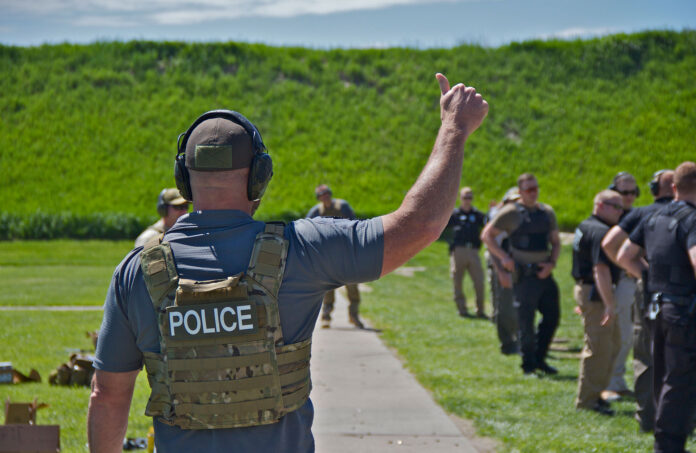In the realm of public safety, the collaboration between tactical training organizations and local law enforcement agencies represents a strategic approach to enhancing community security and resilience. This partnership not only fortifies the capabilities of police forces but also extends the benefits of professional tactical training to the broader community. By integrating the expertise of organizations like 88 Tactical, which derived its name from a law enforcement code signaling safety, with the practical experiences of law enforcement, communities can develop more robust safety networks.
The Importance of Collaboration in Public Safety
Collaboration between tactical training organizations and local law enforcement is not just beneficial—it’s essential for evolving the modern approach to community safety. These partnerships leverage the strengths of each party, combining advanced tactical training with real-world law enforcement insights to create comprehensive safety solutions.
Enhancing Law Enforcement Capabilities
For law enforcement agencies, collaboration with tactical training experts can lead to significant enhancements in their operational abilities. Officers trained in the latest tactical techniques are better prepared to handle a variety of critical situations, from active shooter incidents to emergency response strategies. This training ensures that law enforcement personnel are not only physically prepared but also mentally equipped to deal with the pressures of their duties.
Building Community Trust and Engagement
When law enforcement engages in visible, proactive measures like tactical training, it helps to build trust within the community. Residents feel safer when they know their police force is well-trained and capable of protecting them. Moreover, these collaborations often open up opportunities for community engagement, such as public safety workshops and seminars, further strengthening the relationship between residents and law enforcement.
The Role of 88 Tactical in Law Enforcement Training
As a leader in tactical training, 88 Tactical offers specialized programs designed to meet the unique needs of law enforcement agencies. These programs focus on realistic, scenario-based training, which is crucial for preparing officers for the complexities of real-life situations.
Scenario-Based Training Approaches
88 Tactical’s scenario-based training is designed to simulate real-world situations as closely as possible. This method allows law enforcement personnel to experience the stress and decision-making pressures they will face in actual emergencies, all within a controlled and safe training environment. The scenarios are crafted based on current trends and potential threats, ensuring that the training is relevant and practical.
Continual Learning and Adaptation
The landscape of public safety is constantly evolving, and so must the training programs. 88 Tactical prioritizes continual learning and adaptation in its law enforcement programs, updating courses to reflect new tactics, technologies, and threats. This commitment ensures that law enforcement personnel receive the most current and effective training possible.
Collaborative Training Programs
Effective collaboration between tactical training organizations and law enforcement involves more than just sharing resources; it requires integrating knowledge and skills in a way that benefits all parties involved.
Joint Training Sessions
Joint training sessions bring together law enforcement officers and tactical training instructors to share knowledge and skills. These sessions can cover a range of topics, from physical defense techniques to advanced tactical operations. The collaborative environment fosters mutual respect and learning, enhancing the overall effectiveness of the training.
Specialized Workshops and Seminars
Workshops and seminars provide opportunities for deeper exploration of specific topics, such as digital crime prevention, terrorism response strategies, or crisis negotiation. These events are often open to multiple law enforcement agencies, promoting a broader exchange of ideas and practices that can lead to more standardized approaches across different forces.
Community Outreach and Education
An essential aspect of this collaboration is extending training and educational opportunities to the community. This initiative not only enhances public safety but also empowers residents with knowledge and skills that can aid in personal and community safety.
Safety Workshops for Residents
Offering safety workshops and seminars to residents is a direct way of engaging the community in public safety efforts. These programs can cover everything from basic self-defense to emergency preparedness, giving community members actionable skills and knowledge.
Youth Engagement Programs
Engaging youth in public safety efforts is crucial for long-term community resilience. Programs targeted at young people can introduce them to careers in law enforcement, educate them about the law, and teach them important life skills like leadership, teamwork, and responsibility.
Conclusion: Strengthening Communities Through Strategic Partnerships
The collaboration between tactical training organizations like 88 Tactical and local law enforcement is more than a strategy for enhanced officer training; it’s a cornerstone of community safety and resilience. By combining advanced tactical training with real-world law enforcement experience, these partnerships not only improve the effectiveness of police forces but also deeply integrate safety consciousness into community culture. As these collaborative efforts continue to grow, they lay the foundation for safer, more engaged, and resilient communities.
